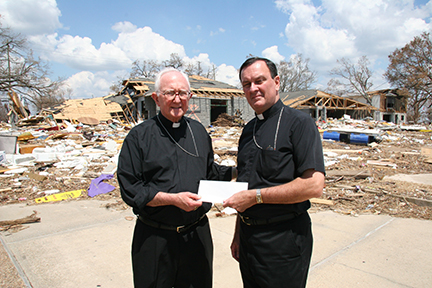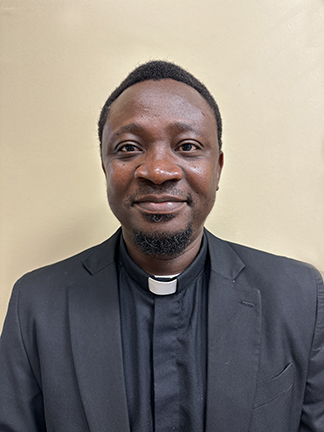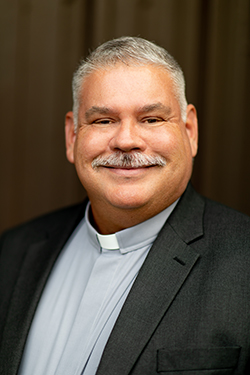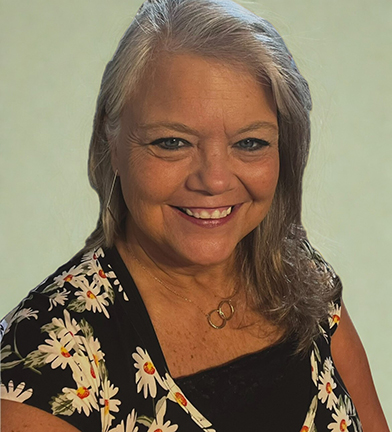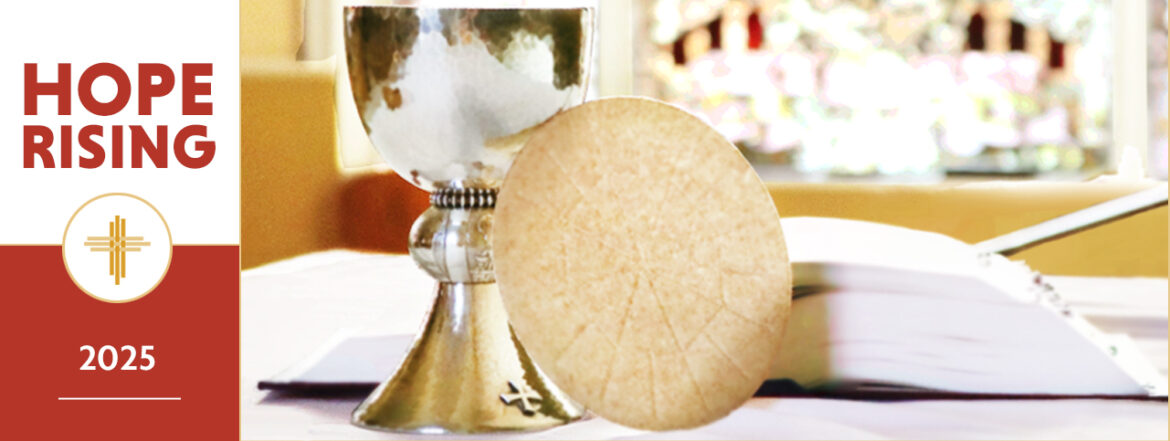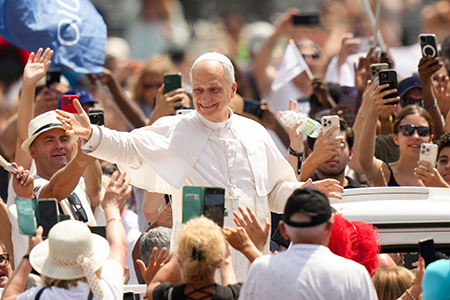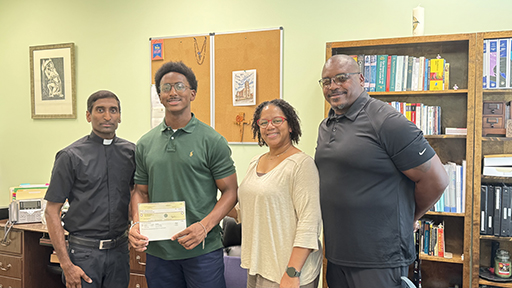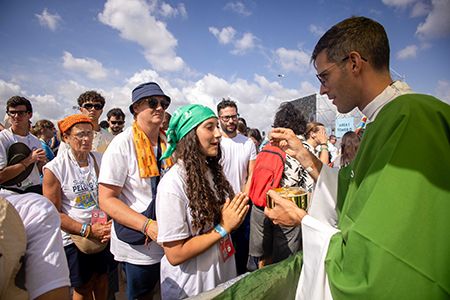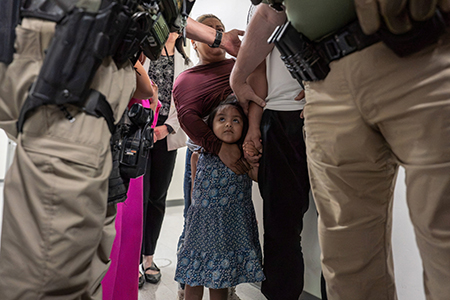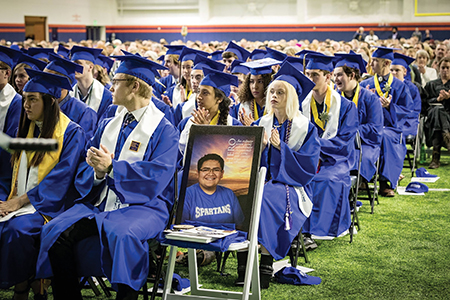FROM THE HERMITAGE
By sister alies therese
As in a responsorial psalm, repeat after me: God is in the obstacle.
Or so they thought. Or so they said. However, for some, in that desert, after a little while, when the buzz quiets, something else takes over – a kind of resistance, acedia. It is not just monks and nuns who suffer this; married people, singles, anyone can fall prey.
Kathleen Norris, in her exceptional book “Acedia & Me,” tells how the word itself has gone through a myriad of definitions since the earliest writings in “The Praktikos” of Evagrius Ponticus (345–399). Some are: “Acedia: the deadly sin of sloth; or spiritual torpor and apathy,” according to Webster’s Third New International Dictionary. The Oxford English Dictionary defines “accidie” as heedlessness, torpor … a non-caring state. The Online Medical Dictionary describes “acedia” as a mental syndrome whose chief features are listlessness, carelessness, apathy and melancholia.
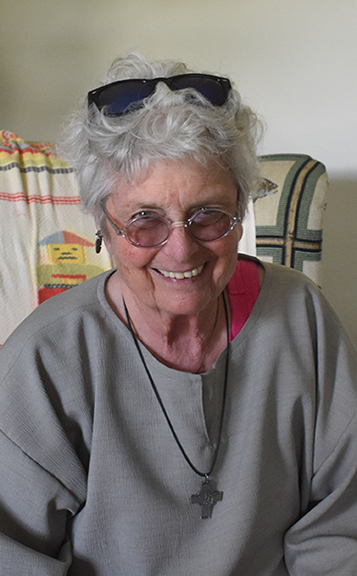
Repeat: God is in the obstacle.
When the seeker would ask about this struggle, Abba Poemen would advise: “Watchfulness, self-knowledge, and discernment. These are the guides of the soul,” according to “Desert Fathers and Mothers” by Jonathan Wilson-Hartgrove.
Isadore of Pelusia offered this: “Many desire virtue, but fear to go forward on the way that leads to it, while others consider that virtue does not even exist. So, it is necessary to persuade the former to give up their habitual idleness, and to teach the others what virtue really is.”
Amma Syncletica said there is an asceticism determined by the enemy and practiced by his disciples. She asked, “How are we to distinguish between the divine and demonic tyranny?” Her answer was: “We must arm ourselves in every way against the demons. For they attack us from outside, and they also stir us up from within; and the soul is like a ship when great waves break over it, and it sinks because the hold is too full,” as recorded in “The Sayings of the Desert Fathers” by Benedicta Ward. And you ask, how is God in the obstacle?
Amma Theodora, renowned for her wisdom, tells us it is good to live in peace, practicing perpetual prayer. “However,” she says, “you should realize that as soon as you intend to live in peace, at once evil comes and weighs down your soul through accidie, faintheartedness and evil thoughts. It also attacks your body through sickness, debility, weakening of the knees and all the members. It dissipates the strength of the soul and body, so that one believes one is ill and no longer able to pray,” also from “The Sayings of the Desert Fathers.”
Yes, you’ve had this experience. You sit down to pray, feeling quite good, knowing you will talk with God … when you remember your shopping list, calling your mother or watering the plants. It will only take a minute, so you do that thing. Then the phone rings, the TV goes off, the kids pack in from school … and it keeps happening. Those little demons of distress wiggle into your soul, and it seems there’s not much you can do about the indifference, weariness, lax intentions or dryness that grows.
Cassian wrote that “if we are overcome by sloth or carelessness and spend our time in idle gossip, or are entangled in the cares of this world and unnecessary anxieties, the result will be that a sort of species of tares will spring up and occupy our hearts, and as our Lord and Savior says, wherever the treasure of our works or purpose may be, there also our heart is sure to continue.”
Sloth is a culpable lack of physical or spiritual effort; acedia or laziness. One of the capital sins, according to the Catechism of the Catholic Church, sins are called “capital” because “they engender other sins or vices.” (1866) This spiritual effort manifests itself mainly during prayer and in the life of one given to God; this is a disaster. “Someone said to Antony, ‘Pray for me.’ The old man said to him, ‘I will have no mercy upon you, nor will God have any, if you yourself do not make an effort,’” writes Benedicta Ward from Carrigan’s “The Wisdom of the Desert Fathers and Mothers.”
Acedia in full bloom looks like frustration or weariness, experienced as sadness – “sadness in relation to a spiritual good … a retreat from the divine good itself,” as St. Thomas Aquinas says in “Summa Theologica.” I just don’t care. I can’t be bothered.
Kenneth Russell, in his article in “Review for Religious,” writes that “acedia is a gray morning’s inclination not to intensify the original yes to God, community or spouse … choose to swim no further. … What they really opt for is some means of control over their own comfort. … The victims of acedia tread water and console their anxieties with sleep or attempt to dissipate them in one distraction after another.”
David of Augsburg (d. 1272) described “accidie” in three kinds: the first is bitterness of mind that cannot be pleased by anything cheerful or wholesome; the second, a kind of indolent torpor loving sleep and comfort; and the third, “a weariness in such things as belong to God, praying without devotion, rushing through, thinking of other things as not to be bored.” Chaucer’s “Parson’s Tale” notes that “envy and anger cause bitterness, which is the mother of acedia, and takes from a man the love of all goodness. Then is acedia the anguish of the troubled heart; as St. Augustine says, ‘It is the sadness of goodness and the joy of evil.’”
How can God be here?
It has been a very hot summer; maybe your prayer is distressed? Think of the Noonday Devil, as acedia is often called – for at the height of noon the sun beats down, the pray-er is hungry, nothing is going right, and one could not be convinced God is in these obstacles. Give up. But I was meant for this – this community, this vocation, this spouse. Or was I? The demon of doubt squeaks in. This is where my talent lies – the very one given to me by God, you try to think. Mark Cuban, the entrepreneur, quipped: “Talent without effort is wasted talent. And while effort is the one thing we can control, applying that effort intelligently is next on the list.”
Finally, Abbot Jean-Charles Nault, OSB, sums it up when he writes that “acedia is the enemy of spiritual joy … a profound withdrawal into self to save one’s freedom at any price … no longer any room for an abandonment to the other or for the joy of gift. What remains is sadness or bitterness … distancing oneself, separated from others and likewise separated from God,” as he wrote in “Enemy of Spiritual Joy” in Communio journal.
What to do: Intensify your prayer. Don’t look for distractions. Be vigilant. Don’t settle for being less than you can. Don’t refuse responsibility. Do for others. Search for God in the obstacles. Life in God is not a spectator sport.
“And should our branches be broken off by negligence, carelessness, disdain or ruin, may these reckless prunings carry even more significance as symbols of peace in a broken world,” wrote Sister M. Guider, OSF.
God is in the obstacles.
God has found you.
Blessings.
(sister alies therese is a canonical hermit who prays and writes.)

